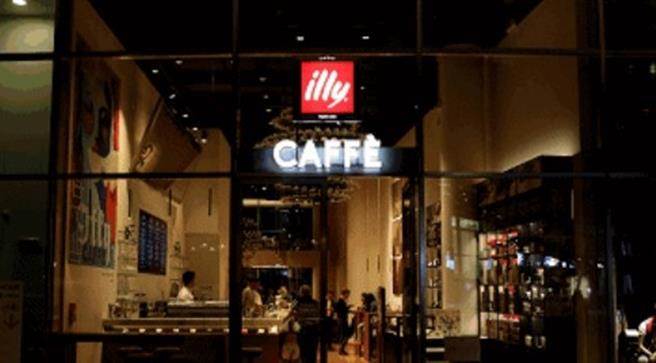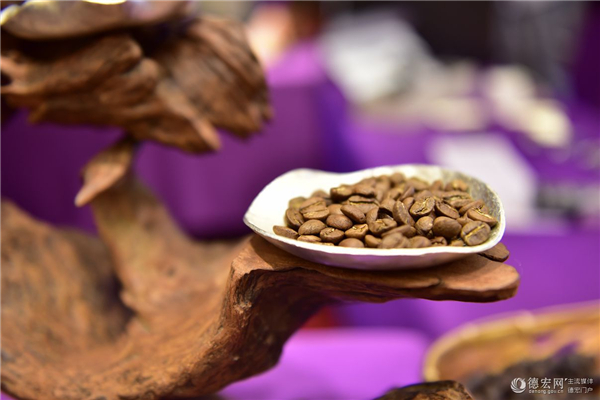Illy joins Starbucks with a new competitor

For professional baristas, please follow the coffee workshop (Wechat official account cafe_style)
In the current Chinese market, although coffee consumption is still not popular enough, it has created the fastest growth in the world. So the market wind also changes, although it is not easy to make a profit, the shop closure rate is not low and other practical problems, but still can not stop the enthusiasm of the players.
A hot and dry market
Illy is also reluctant to give up opportunities that are closer to consumers. This Italian coffee brand, which has always been more focused on providing coffee raw materials for upscale hotels, catering brands and cafes in the Chinese market, is now going deeper into the ranks of ordinary consumers.
A few days ago, illy's boutique coffee shop in Hangzhou officially opened to accept guests. In addition to selling coffee beans and coffee powder, the store will also offer espresso, light snacks, light meals, cocktails and coffee cups and other peripheral products.
Obviously, this is closer to the common cafes on the market, rather than just stores that sell coffee raw materials. This means that there are signs that illy is gradually turning to the Chinese consumer market.
You know, before that, illy had a completely different look in the Chinese market. Although illy's brand has long been popular, 75% of its business in China comes from hotel and catering enterprises on the B side of to. Imando, a concept store similar to the new store in Hangzhou, has only opened four stores across the country so far.
According to illy's current plan, more new stores will continue to be opened in Beijing, Shanghai, Dalian and other cities in the future.
The shift in illy's attitude may find a clue in its global CEO Andrew Illy's previous comments: "in China, the popularity of coffee culture precedes coffee consumption, which is very interesting, and sooner or later it will be combined with consumption." If coffee becomes a part of Chinese people's daily life, then coffee consumption will really rise. "
Perhaps, in the eyes of illy, the time has come.
I'm afraid illy is not the only one with similar ideas. In today's coffee shop market, people outside the bureau are scrambling to enter the market, while those within the bureau are busy adding more, and the market competition is fiercer than ever before.
The typical representative of traditional players is Starbucks in the United States. The offline stores are expanding crazily and the online layout is fully open. According to plans announced last October, the number of Starbucks stores in China will more than double to 5000 by 2021.
Opponents who have been committed to challenging Starbucks are also emerging one after another. In front of the fierce expansion of established players such as Britain's Costa and McCafe McCoffee, there were new faces such as Cofco's "Coffino" and Burger King's King Coffee. Even convenience stores may provide freshly ground coffee, or directly open up an area of 40 murals and 50 square meters for leisure coffee bar operation.
But at the very least, these are to be expected. Compared with these, there are plenty of players who do not seem to be involved.
For example, Aliyun, a cloud service provider owned by Alibaba Group, has jointly opened two programmer-themed cafes with Costa, while NetEase, with the same gene, has also opened his own wholly-owned coffee shop, Yi Jian, aiming at "100 chains across the country."
In addition, grocery brand MUJI, home appliance brand Philips, beauty brands Chanel, Barbie Polang, Koyan, etc., may have arrived on the battlefield or are on their way.
At the same time, capital is helping to heat up the market. A few days ago, local boutique coffee brand Seesaw completed a round of financing of 45 million yuan. After the completion of this round of financing, Seesaw will expand into cities such as Beijing and Shenzhen, increasing the number of stores north to Shenzhen to 20, further moving from independent coffee shop brands to more crowded core business districts.
An inescapable battle
Behind the high enthusiasm of players is the continuous growth of China's coffee consumption market.
Although China currently consumes only 5 cups of coffee per capita per year, which is equivalent to the per capita daily coffee consumption in Europe, and the overall popularity is still not high, but China has now become the country with the fastest growth in coffee consumption in the world-growing at a rate of 20% a year, much higher than the 2% growth rate in the world.
At the 26th World Coffee Science Congress held at the end of last year, industry insiders predicted that China's coffee consumption would usher in a blowout era after 2018. Within 10 years, China's coffee consumption market can reach trillion yuan.
However, this seemingly "money" market is not easy for everyone to earn at the moment.
As early as a few years ago, Qiming, an industry consulting analyst and founder of the Platinum Coffee Institute, made it clear to New Financial Watch: "the coffee industry, especially in first-tier cities, is not as profitable as people think. "according to the comprehensive costs of rent, decoration, labor expenses and so on, the profit of the coffee shop is already a topic.
In August last year, Shenzhen Kela Coffee, which claims to be the country's first "Internet + Finance" themed cafe and the "most expensive" cafe in China, chose to go out of business after less than a year of operation. Once it was reported that the daily rent and operating cost of carat coffee is more than 30,000 yuan, and the annual operating cost is more than 10 million.
This is not the only case. According to a beverage industry data report released by Jiamen and Meituan Dianping Research Institute, the number of cafes in China exceeded 100000 in 2016, but there was a negative growth for the whole year, with a net closure rate of 13.5%.
Qi Ming points out that even Starbucks, which has been popular in the Chinese market for a long time and has more than 2000 stores, has long been out of the state of "a panoramic view of the surrounding short mountains", and the entire market has "far more competitors than expected."
Lin Yue, chief consultant of Lingyan Management Consulting, also expressed a similar view to the New Financial Watch reporter: "Today's competition is smart competitors. In fact, many practices that we follow, including many marketing techniques, can be learned. This makes it difficult to guarantee the uniqueness of the brand. "
Then, as there are more and more players and the competition becomes more and more fierce, fierce battles are inevitable. Many people in the industry believe that the reshuffle period may be coming.
In this regard, Zhu Danpeng, a researcher in the food and beverage industry of the China Brand Research Institute, expressed his position in an interview with the media, pointing out that in the next five years, because there is room for development in the market, the sales of many coffee brands will increase. However, five years later, the industry has gradually developed and matured and may enter the reshuffle stage.
Important Notice :
前街咖啡 FrontStreet Coffee has moved to new addredd:
FrontStreet Coffee Address: 315,Donghua East Road,GuangZhou
Tel:020 38364473
- Prev

From a technical point of view, is there an opportunity for milk tea to replace coffee?
Professional barista communication please follow the coffee workshop (Wechat official account cafe_style) Tiger sniff Note: Tianfeng Research Institute wrote an article on June 5, 2017, "A successful example of the Catering Industry, Why Starbucks?" Xicha and Starbucks are two examples in the article. This leads to a question: can milk tea replace coffee? Of course, the answer to this question is from the root cause.
- Next

Dehong Local Enterprise "Hougu Coffee" Appears at Chinese Chamber of Commerce
Professional barista exchanges, please pay attention to coffee workshop (Weixin Official Accounts cafe_style ) Chinese businessmen walk into Yunnan, cloud products go to the world. The cloud product promotion meeting sponsored by the Overseas Chinese Affairs Office of Yunnan Province was held in Kunming on the afternoon of June 11, setting up a brand-new cooperation platform for Chinese businessmen from all over the world. Dehong local enterprise Hougu coffee debut promotion meeting. With the help of unique resource advantages, Yunnan strives to develop its own resources.
Related
- What brand of black coffee is the most authentic and delicious? what are the characteristics of the flavor of the authentic Rose Summer Black Coffee?
- Introduction to the principle and characteristics of the correct use of mocha pot A detailed course of mocha pot brewing coffee is described in five steps.
- Which is better, decaf or regular coffee? how is decaf made?
- How much is a bag of four cat coffee?
- How about four Cat Coffee or Nestle Coffee? why is it a cheap scam?
- Which is better, Yunnan four Cats Coffee or Nestle Coffee? How about cat coffee? is it a fake scam? why is it so cheap?
- How about Cat Coffee? what grade is a hoax? which instant coffee tastes better, four Cat Coffee, Nestle Coffee or G7 coffee?
- Process flow chart of coffee making-Starbucks coffee making process what coffee tastes good at Starbucks
- The top ten best coffee beans in the world Rose summer coffee or Tanzanian coffee tastes good
- Yunnan four cat coffee is good to drink?_four cat coffee is a big brand? four cat blue mountain coffee is fake?

